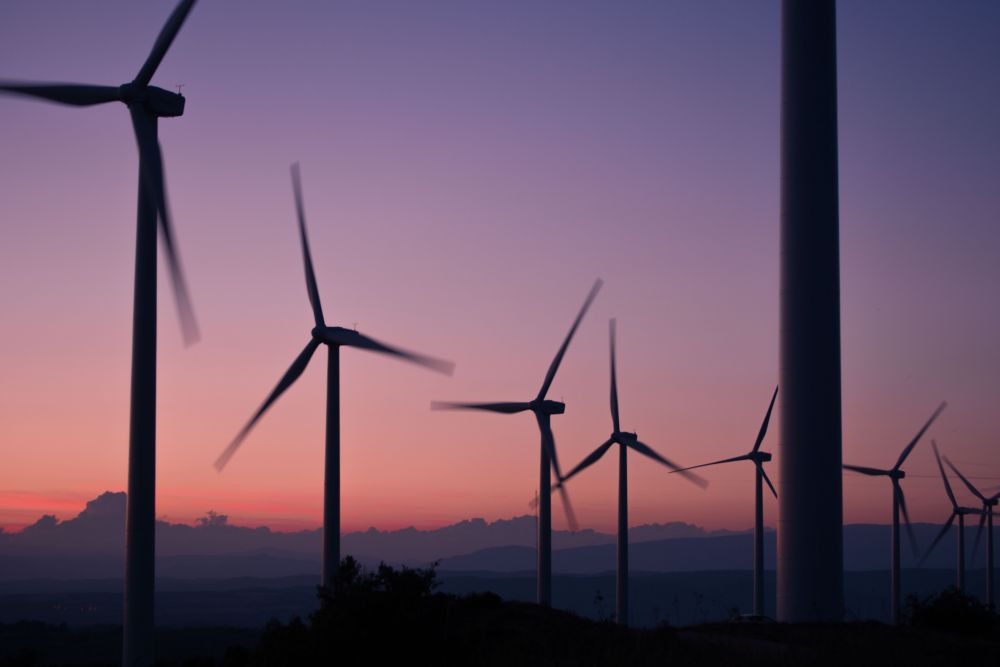New report analysing European Green Deal warns of governments’ key role in ensuring implementation
A new report by think tank Strategic Perspectives analyses the impacts the European Green Deal will have on businesses and households.

A new report by think tank Strategic Perspectives analyses the impacts the European Green Deal will have on businesses and households.
The report finds that the Green Deal will provide a range of benefits for businesses and households alike and put Europe on an irreversible energy transition path. Informed by Cambridge Econometrics data, this report analyses the concrete implications and benefits of the laws (‘Fit for 55’ package and ‘REPowerEU’ legislation).
The report finds that in just seven years, Europe’s energy landscape will be transformed if European climate laws are properly implemented.
By 2030, 55% of electricity will come from wind and solar power, 29 million private electric cars will be on Europe’s roads and 58 million heat pumps will be installed. The high use of renewable energies, combined with energy savings and the electrification of transport, heating, and industry, will reduce gas consumption by 31% and oil consumption by 34% in 2030 compared to 2019.
In terms of absolute gas demand, it will fall by between 83.50 billion cubic metres (bcm) in a low energy price scenario and 92.91 bcm in a high energy price scenario by 2030, almost equivalent to Germany’s gas consumption (94 bcm) in 2021. Coal is expected to be phased out by 2030, as it won’t be cost-competitive anymore according to the model findings.
Given the envisaged cut in gas consumption, the recent rush to build new gas and oil infrastructure, especially liquefied natural gas (LNG) terminals, is questionable. Energy savings and renewable energy deployment are the best ways to quickly decouple Europe from Russian energy.
After decades of heavy and costly dependence on international fossil fuel markets, the European Union will begin to build a new energy security policy architecture based on the full potential of energy transition. It is a cost-effective and strategic choice for Europe.
To secure the pace and the scale of the net-zero transition required by the European laws, Strategic Perspectives highlights three main challenges that need to be addressed:
- Unlocking investment and ensuring European solidarity. Additional investment of €351 billion by 2030 (excluding inter alia household spending on vehicles or efficiency) are needed for implementation compared to a business-as-usual scenario. This is equivalent to 10% of total investments made across EU countries in 2022. Given the constraints on fiscal space by some countries, a new European climate investment framework can enable sufficient access to funding across the EU. The debates on a European Sovereignty Fund and the review of the EU budget can take into consideration measures to ensure fair and sufficient support for all EU countries.
- Making climate-friendly equipment affordable for low and middle-income households as the basis of a new social contract in Europe. The upfront investment to access climate-friendly solutions is high for the average citizen. EU and national policy-makers can ensure equal access to net-zero technologies by providing targeted support to those who need it most.
- Building a European net-zero industrial base. Accelerating Europe’s transition can increase European imports in sectors related to net-zero technologies slightly by 2030. Europe, therefore, risks remaining a net-importer and dependent on China. Building European manufacturing of these technologies can reverse this trend, secure the achievement of climate goals, maximise the benefits in terms of employment and innovation, and position the EU at the forefront of the global race.
The think tank notes that with the European Green Deal priving to be a unifying solution to the multiple crises facing Europe, including economic recovery from the pandemic, climate change, high dependency on energy from Russia and competition on net-zero technologies from China and the US. National governments now have a key responsibility to ensure implementation, which is the only guarantee to maximise the benefits.
Read the full report here.






